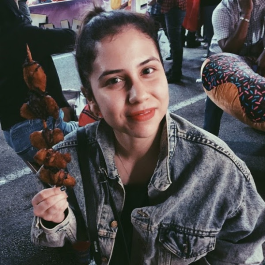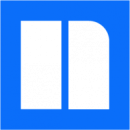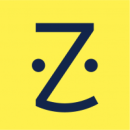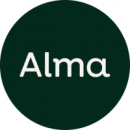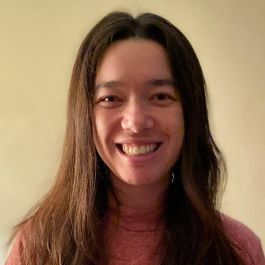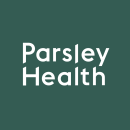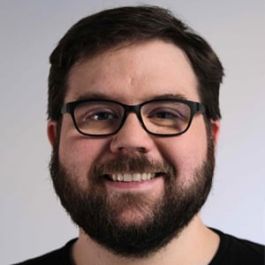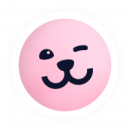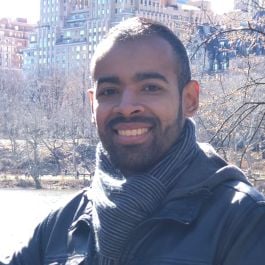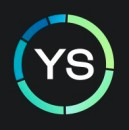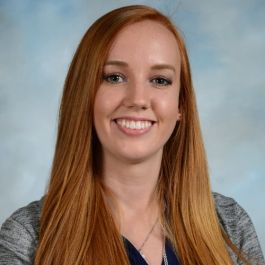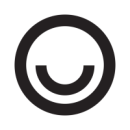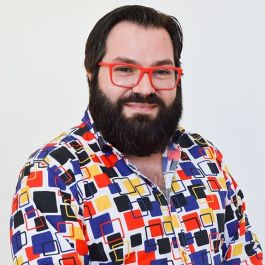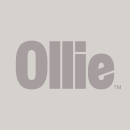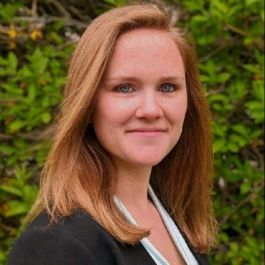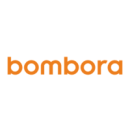It’s almost impossible to be online for any length of time and not hear about how hard it is for companies to find workers. It is indeed true that, at least in recent memory, there’s never been a better time to look for a new job. That said, of course, the act of finding open roles isn’t what’s challenging. The hard part is actually finding a company whose mission aligns with your own values and a job that is both engaging and challenging.
This is especially true for engineers, who have no shortage of options even in a bear job market. Ben Warburton faced this exact challenge when he recently began the job search. Warburton eventually joined Capitalize as a senior software engineer, but not before going a handful of interviews that all started to blend together.
“When I decided to leave the unicorn I was at, I wanted to find a job where I would help improve the world in a meaningful way,” Warburton said. “I went through a few rounds of interviews at a bunch of places, but a lot of them offered a similar basic proposition: optimize engagement with a market or product. When I learned more about the mission at Capitalize, I knew it was the place for me.”
Warburton is one of 11 New York tech workers we recently spoke with about their job search and what brought them to their companies. Some, like Warburton, were looking for an employer whose mission matched their values. Others wanted to grow their skill set and careers. The common thread uniting everyone? None of them settled for less — that and their companies are all hiring.
What attracted you to apply for a role at Newsela in the first place?
I was really drawn to the idea of working in education, and through my discussions with folks on the team, I was really excited about the opportunity to see our products at use in the classroom and experience the impact Newsela can have on students firsthand. I realized I wouldn’t be working for “just another tech company.” The products we’re building are really making a difference.
During the interview process, I was struck by how earnestly committed everyone was to Newsela’s mission: meaningful classroom learning for every student. That was the kind of team I was looking for. It felt very special, this unique opportunity to work with passionate, collaborative people who are motivated to make the world a better place.
Which skill or experience do you think helped distinguish you during your job search?
I think it was a combination of my focus on mission-oriented projects and my experience in machine learning. Throughout my career, I’ve had the opportunity to take on side projects and volunteer projects focused on doing social good in healthtech, education and other areas. These projects gave me valuable insight into the state of technology in those sectors and helped me see the patterns of the issues facing users. They also gave me an appreciation for focusing on what’s actually useful, not just what’s cool, in the tech world.
I’ve grown an interest in doing things with data: cleaning it up, appreciating the nuances of it and how those nuances apply to a final solution. I had the opportunity to learn machine learning and deep learning when they were beginning to emerge as more mainstream solutions, which enabled me to work with them as their applications evolved. I can now leverage that knowledge for the search and recommendations work I’m doing at Newsela.
What do you enjoy most about developing Newsela’s technology, and what do you find most exciting or challenging?
I really enjoy my team’s approach to developing. It’s a safe environment, and everyone is very open with their questions and concerns, opinionated about what actually matters and not hung up on the things that don’t. The openness and honesty makes me feel like I can trust in everyone because we’re all committed to Newsela’s mission.
I was the first engineer on the recommendations team, which is more of a green space within Newsela. Our mandate is to surface the right content at the right time to ensure teachers don’t hours searching for the articles they want to bring to their lessons. It’s extremely cross-functional work and I get to learn from other teammates as I dive further into the nuances of K-12 classroom dynamics.
There are so many variables in the classroom that I need to keep in mind, and the complexity of that challenge is extremely engaging, and I love that my team has flexibility in how we can approach it. Our work also has an impact on day one with Newsela’s tens of millions of users. That’s a very exciting and rare opportunity to me.
What attracted you to apply for a role at Zocdoc in the first place?
It started with a simple desire to move to the Big Apple after college. In addition, I wanted to work for a small company where everyone, even junior engineers, has the opportunity to really contribute and make an impact on the product. Lastly, I wanted to work for a company that aims high and works to make real improvements to something important. Luckily, I found all of that and more at Zocdoc.
Which skill or experience do you think helped distinguish you during your job search?
I like to believe that, before anything else, I had the right programming skills. I earned my B.S. in Computer Science from UC Irvine and I credit this program for preparing me for my job search. Along the way I participated in several internships, including a “zinternship” — a Zocdoc internship — in the summer of 2020. The internship was a critically important experience that helped ground my expectations.
Beyond that, Zocdoc is a company that values the ability to work collaboratively. I am comfortable working in that way. I was told the team was impressed with my completion of a large project during my internship and recognized that I am eager to learn and unafraid to ask questions to ensure I have the understanding needed to do my work.
What do you enjoy most about developing Zocdoc’s technology, and what do you find most exciting or challenging?
The best part of my job is working with brilliant and talented people. The free lunch is a close second. Everyone is so curious and eager to teach and learn. I am glad that I have the opportunity to interact with professionals from different disciplines and I’m learning so much in the process. On a typical day I could be programming, working through open-ended design questions, writing tech spec documents, and more.
At a small and rapidly growing company like Zocdoc, job title boundaries are flexible, and wearing many hats makes things both exciting and challenging. The opportunity to try all these things is especially important early in my career, and I hope it will help me answer the big question: What do I want to be when I grow up?
What attracted you to apply for a role at Alma in the first place?
When I started job hunting last year, I was mainly looking for companies with a mission in areas I personally valued. Mental health hadn’t really been in my vocabulary growing up and throughout most of my adult life, but I had recently gone through premarital counseling, my first experience with therapy.
It helped me understand what therapy actually looked like and what it meant to work through different aspects of my life and our relationship. I had heard great things about Alma from a few different people, and when I saw that they were hiring an engineering manager, I applied right away.
Which skill or experience do you think helped distinguish you during your job search?
If I had to guess, I think it’d be that my philosophy around managing engineers and team-building aligned with Alma’s. I’m still developing my own thinking and experience around leadership, but there were topics in the interview where both sides thought similarly, such as leading with kindness and empathy, being intentional and consistent in supporting engineers’ growth, whatever that might mean for each individual; and establishing a culture of equity and transparency.
What do you enjoy most about developing Alma’s technology, and what do you find most exciting or challenging?
We’re growing our team and product fairly quickly, and while it’s taken a lot of effort — and learning from mistakes — to navigate that growth in a thoughtful way, I feel really fortunate to work with people who also value long-term team health over short-term results. Our growth is also really exciting in terms of the impact our work could have.
We are in a position where our team’s success contributes pretty directly to increasing access to affordable therapy. The more we invest in building a powerful, easy-to-use product, the more we’re able to support a larger number of therapists and the more we can leverage insurance to help people find the affordable therapy they need.
What attracted you to apply for a role at Parsley Health in the first place?
First, the company’s product. They work in specific areas of health that I’m personally interested in exploring, so I was attracted to the idea that what I’d learn at work would feed into what I’d want to learn outside of work. I was also generally looking for the ability to work with technologies I was interested in but didn’t have much experience with. Parsley is not only OK with that, but the culture and my team encourages and enables my growth by allowing me to learn new technologies.
Which skill or experience do you think helped distinguish you during your job search?
I didn’t have much experience in the technology I would be using on the job most heavily, so I would say my eagerness to learn and practice on my own were pluses. I was told that my resume stood out for being well-organized and focused on user outcomes, and that I did a great job communicating with non-technical audiences.
Additionally, throughout the interview process, I asked the right questions and was legitimately interested in what the team was working on. I remember really enjoying my interviews: The conversations were pleasant and I was able to learn new concepts through them. Lastly, demonstrating genuine interest and approaching interviews as a learning opportunity also helps!
What do you enjoy most about developing Parsley Health’s technology, and what do you find most exciting or challenging?
I’m super interested in what my team specifically is building: the potential for how useful, informative, and new that product could be for its users. It’s also something I would want to use myself! The codebases I work in are relatively new but still very built out, so there’s a good foundation to build upon with many new, exciting things to add. Everyone on the team is able to be a leader and an owner, resulting in an environment that is both empowering and highly collaborative.
I also like that everyone on my team is encouraged to work on what they’re interested in and not necessarily only on what they’re good at. Overall, Parsley engineers have a lot of opportunity to try and learn new things and everyone is super supportive in helping you succeed.
What attracted you to apply for a role at Medly in the first place?
I applied for a data engineer role at Medly about a year ago, and as the interview progressed I got a taste for the company culture. Everyone throughout the process was super communicative and had constructive feedback to share. Even though I didn’t land the job, it did not stop me from applying again the next year. The team had already grown a lot since then and everything fell into place. What really attracted me to re-apply was the honest culture. I felt like I could contribute, learn, grow and make a difference.
Which skill or experience do you think helped distinguish you during your job search?
I had prior experience with cloud-based technologies, ETL scripting, designing data warehouses, reporting and application development. I also came from a pharmacy background and was comfortable working with PHI data. Apart from that, I have always been extremely passionate and curious about learning new technologies and implementing them in the world of data.
What do you enjoy most about developing Medly’s technology, and what do you find most exciting or challenging?
The best part about Medly is that it is constantly and consciously trying to keep up with the current trends and shifts in technology. I have often seen people shy away from change, but that is never the case here. Medly encourages you to be bold and try new things out. This is exactly why you feel like you are learning something new every single day!
What attracted you to apply for a role at Capitalize in the first place?
When I decided to leave the unicorn I was at, I wanted to find a job where I would help improve the world in a meaningful way. I went through a few rounds of interviews at a bunch of places, but a lot of them offered a similar basic proposition: optimize engagement with a market or product. When I learned more about the mission at Capitalize, I knew it was the place for me. Optimization is something every business has to do to thrive, but Capitalize’s core mission is to help people retire with dignity. That really spoke to me.
Which skill or experience do you think helped distinguish you during your job search?
I have almost a decade and a half of software engineering experience and nearly a half decade in fintech, and my prior role was making enterprise software for Fortune 500 companies. I think what helped more than anything, though, is my love of delivering features to customers no matter what it takes. I did also have an ace up my sleeve, though.
When it came time for the in-person — AKA Zoom — meeting, I was able to put my past life as a yo-yo demonstrator on display. Plus, as cool as I am, I spent most of my time talking about how cool my wife, an Emmy-award winning hair stylist, is and about my daughter, who is a frequent meeting-crasher.
What do you enjoy most about developing Capitalize’s technology, and what do you find most exciting or challenging?
The most challenging part is navigating the maze of financial services. It’s crazy to me that in 2021 we still need fax machines. No matter what ancient workflow exists, I’m confident that the engineering team here can solve it.
What attracted you to apply for a role at Pawp in the first place?
I was looking for a place that would give me both space and fertile soil to grow my skills and career, and for a company that was both early in its growth trajectory and confident in its product-market fit. That’s a tricky mold to fill! Beyond that, I wanted to work with brilliant people who had ideally done it all before; raised money, built a company and made a successful exit.
There aren’t many companies that check those boxes, and it’s hard to choose between the ones that do. Pawp made the choice easy, and the key differentiator for me were the people. They’d all hit doubles and triples before and looked primed to knock it out of the park this time around. These kinds of opportunities are special, and you take them when you find them.
Which skill or experience do you think helped distinguish you during your job search?
I’ve always been interested in the “full stack” of a business: While I like to think of myself as an engineer’s engineer, I don’t see my contribution to a company in one-dimensional terms exclusively along the axis of technology. I see technology as an enabler or catalyst for the underlying business. If we, as engineers, catalyze the wrong process or misunderstand the business, the systems we build will be neutral or net-negative to the company’s value proposition.
At my former employer, I learned how the insurance industry works from soup to nuts. That knowledge made me a more effective engineer and it has clear parallels to Pawp. At early-stage companies especially, you need engineers who are going to autonomously identify, build and grease the right flywheels. I think I have a knack for that, and it came across in interviews where we stepped back from technology to look at the business overall.
What do you enjoy most about developing Pawp’s technology, and what do you find most exciting or challenging?
I enjoy how we see technology as a lever to maximize product quality and velocity, which translates into hiring great people and giving them whatever they need to build great customer experiences. If a piece of technology is not making us 10 times more effective, it is holding us back.
The biggest challenges are problems with no obvious answer: where to index our time, when to invest in derivatives and second derivatives of productivity, and in which systems should we trade velocity for maintainability and scalability. But these are challenges that every startup faces. What differentiates companies that overcome challenges from companies that succumb to them are the quality of people they’re able to bring to the table.
At Pawp, our people and their first-degree networks have faced up to and learned from these fundamental problems many times before. This wealth of experience makes our challenges more exciting. The fog of uncertainty surrounding all engineering organizations is not as thick here, and it gives us confidence and assurance in making bold technology investments.
What attracted you to apply for a role Yieldstreet in the first place?
By far it was the company’s culture and how they care about their employees. We say that we are an investor-first, or customer-first, company, but I could say that we are employee-first, too. Everything here has been thought of with the wellbeing of employees in mind, from the weekly team lunch to the office gym. Also, the flexibility to work in a hybrid model helps us to have a good work-life balance. And what can I say about a company that gives you unlimited PTO? I’m amazed so far!
Which skill or experience do you think helped distinguish you during your job search?
I believe it was my background and the pool of frameworks that I have experience with. I do speak English and Portuguese, too, which can be helpful when talking to our colleagues in Brazil. Also, I worked for a big financial institution before, which might have contributed as well.
What do you enjoy most about developing Yieldstreet’s technology, and what do you find most exciting or challenging?
The possibility to learn new technologies and apply them in your day-to-day work is very exciting. Most companies work with outdated tools or frameworks, but YieldStreet is always trying to improve or upgrade their technology to deliver the best software possible to their customers. And the best part of it is that you can grow professionally while the company evolves as well. We are constantly trying to improve as an organization and enable our team to build their career here so that they don’t feel like they need to seek outside opportunities, which is not something most companies do.
What attracted you to apply for a role at Happy Money in the first place?
The first thing that drew me to Happy Money was the logo. The colorful little smile was bright and friendly and stood apart from other companies that contacted me. I was very curious and upon further investigation, I knew I had to apply. The immediately noticed the highly competitive benefits — Happy Money offers 100 percent health insurance coverage and a 401(k) match, which is a huge deal — and the tech stack, which is challenging but exciting. Happy Money covers a range of technologies and uses a number of languages like Clojure, which I knew would offer me more opportunities to apply my skills, learn, grow and stay challenged and engaged.
Which skill or experience do you think helped distinguish you during your job search?
Prior to Happy Money, I was working as a DevOps engineer but was looking to get back into software development. Thankfully, my experience in DevOps served me well in the job search since I had a better understanding of what software developers need and how to set them up for success with the right platforms and technologies. My experience has given me a more well-rounded view of the full software lifecycle, which allows me to be a more confident developer and communicate well with my DevOps partners. I’d also say that my enthusiasm for technology and my desire to grow and evolve beyond where I’m at today has really helped distinguish me from other candidates.
What do you enjoy most about developing Happy Money’s technology, and what do you find most exciting or challenging?
I love that I came to Happy Money at a time of high growth, so I’m not only seeing existing projects but also getting to see new projects come to life! There are always opportunities to move around and work on something you truly enjoy while still making an impact. We are moving at a rather fast pace, and with that there are challenges. But it also keeps things very exciting.
What attracted you to apply for a role at Ollie in the first place?
The role aligned with everything I was looking for and the company was doing well. The tech stack was one I am well-versed in so I can and do get to write code, something I still enjoy. The team was small but growing and being able to play a key part in that was something I was looking forward to. It really checked all my boxes. Plus I love dogs, so that was an added bonus.
Which skill or experience do you think helped distinguish you during your job search?
It was the combination of my experience and skills that I could relate back to the role’s description. If I had to choose just one thing though, it would have to be coding. You really can’t forget about the basics.
What do you enjoy most about developing Ollie’s technology, and what do you find most exciting or challenging?
I really enjoy the stack I work in. Python with Django is one of my favorite language-framework combos. I find dealing with third-party integrations can sometimes be challenging. For example, when you run across behavior you didn’t expect or a feature that wasn’t well-documented, it can throw you into a loop. I’m really looking forward to cleaning up, optimizing and expanding on our code base.
What attracted you to apply for a role at Bombora in the first place?
Not only was I excited to learn that Bombora is a big data company building production machine learning models, but I was excited about the company culture. The job posting I applied to read, “You will have fun (or we really hope you do),” which was the first time I saw this on a job posting. This line, the outlined benefits and pictures from company volunteer days showed me that Bombora is truly a company that puts employees first.
Which skill or experience do you think helped distinguish you during your job search?
I believe my lead experience for machine learning projects and demonstration of in-depth knowledge of data science concepts helped me stand out. I have also been admired for my ability to communicate challenging concepts to a non-technical audience, which I know HR took notice of during my first-round interview.
What do you enjoy most about developing Bombora’s technology, and what do you find most exciting or challenging?
When it comes to big data, Bombora has it! Not only is our machine learning pipeline complex, but the sheer amount of data we process to provide a concise metric for our customers is awesome. It is not only a challenge but it also keeps me excited thinking about all the enhancements we can make building models with our large data supply.


